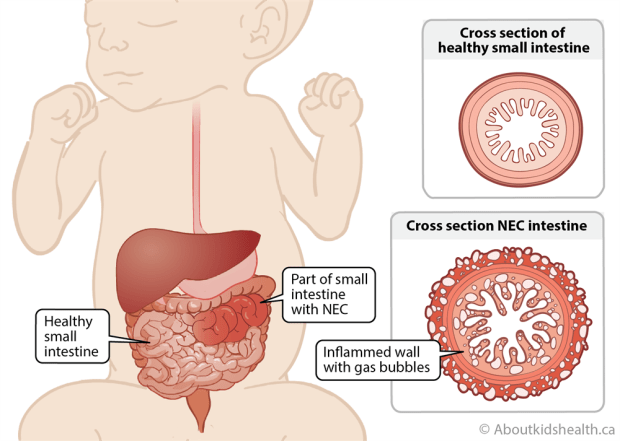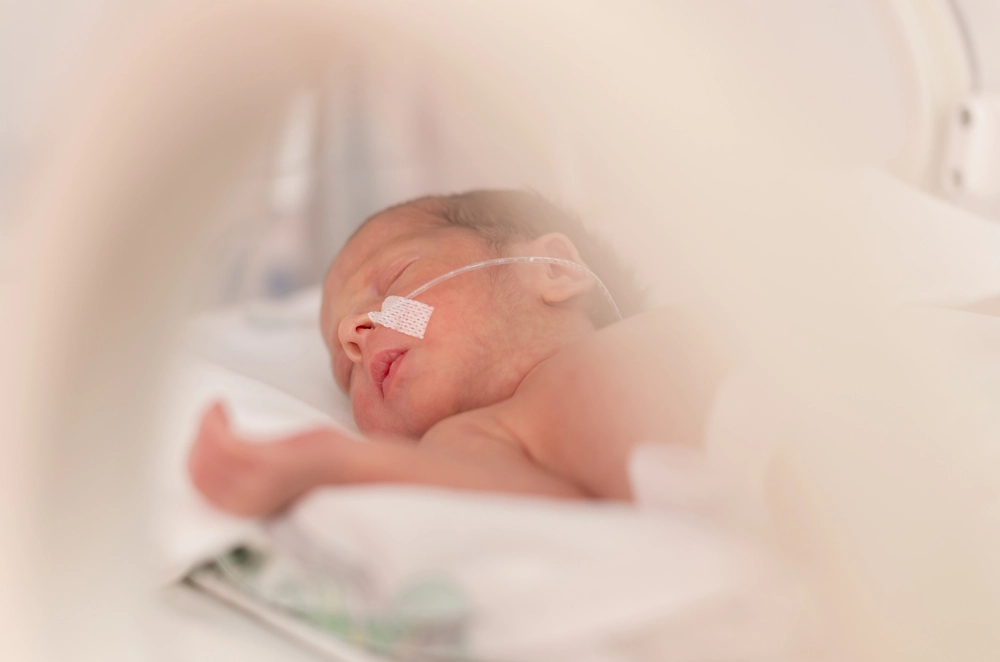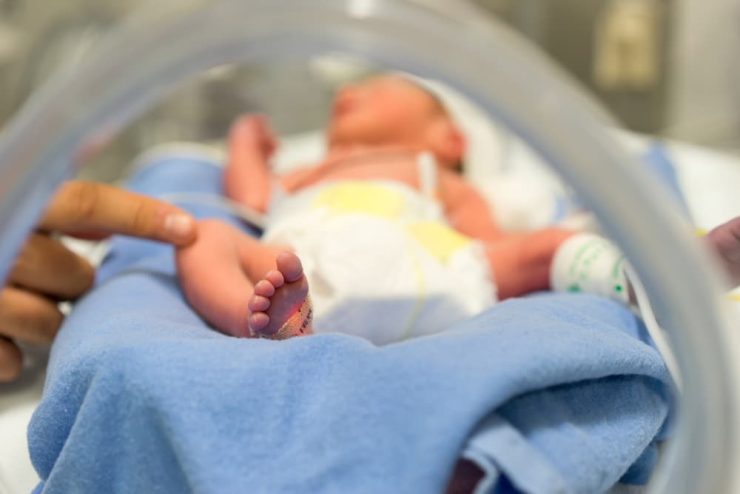Necrotizing Enterocolitis, popularly known as NEC, is a serious illness caused due to gastrointestinal problems. NEC mostly affects premature babies causing inflammation of the large intestine (colon) tissue that can be fatal. Because of the inflammation, a perforation may get formed that allows the bacteria to seep into the belly or bloodstream of the infant leading to severe consequences.
This is especially true for babies who weigh under 3 pounds and 4 ounces (1,500 grams) at the time of birth. Normally, premature babies who are fed by tube and are under six weeks of age are more prone to NEC. Neurodevelopmental delay, failure to thrive, and gastrointestinal issues like Intestinal stricture and short bowels are some common side effects of NEC. You can read more about the same here.
A variety of factors cause necrotizing enterocolitis. The majority of the time, no cause can be determined. The following factors, however, are seen to be relevant by some experts:
- Premature development of the intestine
- Oxygen deficiency in the intestines, whether during birth or afterward.
- Injury to the intestinal lining.
- Intestinal wall deterioration as a result of excessive bacterial proliferation.
- A virus or bacteria causes intestinal infection.
- Formula feeding (breastfed babies have a lower risk of NEC).
The occurrence of NEC in “clusters,” affecting multiple infants in the same nursery, has been observed. It is a life-threatening disease that primarily affects newborns and has a death rate as high as 50%. Some viruses and bacteria have been discovered in newborns with necrotizing enterocolitis (NEC). However, the virus or bacteria that causes NEC can transmit from one kid to the next.
Who Is Affected by Necrotizing Enterocolitis?

Necrotizing enterocolitis is more common in premature infants. However, it has also been found in full-term babies. In most cases, necrotizing enterocolitis occurs within the first two to six weeks of life and is most common after the baby is introduced to milk. 10% of newborns under 3 pounds, 5 ounces are affected with necrotizing enterocolitis, which can cause death. These babies’ bowels are still developing and vulnerable to infection. They may have trouble getting blood and oxygen to their organs and digesting food, which makes them more likely to get necrotizing enterocolitis.
An intestinal perforation (a hole in the gut) can allow bacteria ordinarily found there to flow into the abdomen and create an infection that can be fatal. The damage may be limited to a small section of the intestine or swiftly spread to other parts of the body.
NEC’s causes and danger factors
Most occurrences of necrotizing enterocolitis (NEC) are found in premature infants. However, it can occur in any newborn. Five percent of children under 1500 grams at birth are anticipated to have necrotizing enterocolitis (NEC).
Numerous factors may be involved in necrotizing enterocolitis (NEC) development.
Using a baby formula
Premature babies are at risk for necrotizing enterocolitis (NEC). Babies that do not receive human milk, particularly their mother’s milk, have a higher risk of developing Nephrotic Syndrome (NEC). Intestinal cells mature more quickly in the intestines when fed human milk. It’s also more digestible.
Obstacles to delivery or low amounts of oxygen at birth

NEC is more common in newborns who experienced traumatic birth or were born with low oxygen levels. The brain and heart receive the most blood and oxygen when there is insufficient oxygen in the body. Intestinal blood flow is decreased. As a result, the colon may receive less oxygen.
Bacterial growth
The bowels of a premature newborn are not protected from an overgrowth of bacteria and germs by the baby’s undeveloped immune system. Swelling and infection are possible side effects. More than ten days of antibiotic use may affect intestinal bacterial growth, raising the chance of NEC development.
What are the symptoms of NEC?
NEC typically arises within the first three to ten days of life. NEC symptoms include the following:
- A belly that is red and bloated
- Breathing irregularly.
- Problems tolerating feeds.
- Hypotension (low blood pressure).
- Diarrhea laced with blood is another term for bloody stools.
- A high, low, or unstable temperature.
- Vomit, containing bile.
NEC can be difficult to diagnose since its symptoms, such as vomiting and abnormal bowel motions, are similar to those of other bowel disorders that are not as dangerous as NEC.
How is NEC treated?

First, a baby with NEC will be checked to see if it needs surgery immediately. Treatment may consist of:
- Medical treatment: Enteral feedings (feedings via the digestive tract) is stopped to allow the intestine to rest. TPN is used to feed the newborn. Preventing infection and further damage is the goal of antibiotic use. Surgery may be the only option for babies in critical condition or who don’t improve after many days. Probiotics, which are living bacteria put into the digestive tract, may be used in specific instances.
- If the damage is severe enough, it may be necessary to perform any or all of the following surgeries:
- Remove pressure and inflammation from the abdomen by inserting a drain into the cavity. This gives the bowels a chance to recuperate.
- Remove a portion of the intestine. Necrotic or dead tissue is removed from the bowel. As a result, the remainder of the bowel is kept safe and can begin to recover independently.
- Allow a part of the bowel to recover by rerouting the stool through an enterostomy. An enterostomy will be performed if this is the case. An incision in the abdomen is used to bring the bowel’s open ends together. It is through stomas that stools are prevented from passing through an area of the intestine that needs rest. In order to close the ostomy, the intestines must first heal.
Living with necrotizing enterocolitis
Newborns with necrotizing enterocolitis (NEC) necessitate therapy and constant monitoring. Fortunately, treatment for NEC has few or no side effects. The future health of some newborns is uncertain. The intestines and other parts of the digestive system are included here. Intestinal abnormalities, such as scar tissue can produce obstructions in the intestines. Short-gut syndrome, on the other hand, is a different issue. In addition, premature babies face an increased chance of death.
Conclusion
Parents can be frightened by the diagnosis of necrotizing enterocolitis. Trying to feed a newborn is difficult enough without dealing with the frustration of being unable to do so. Holding and connecting with a baby may not be possible for some parents. Remember that, with proper medical care, your infant will likely return to a regular eating schedule within a short time.




























